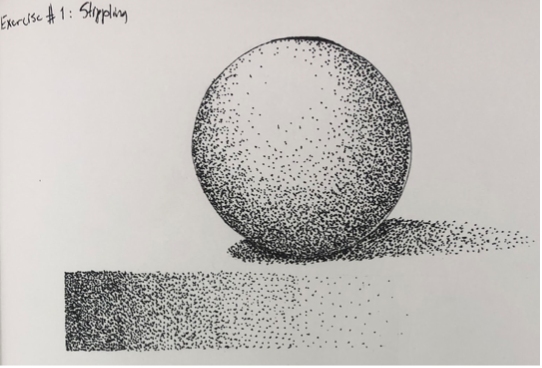#5: Communicate, communicate, communicate!
I really feel that during a crisis, you can’t over-communicate with students and parents. I use any and all means at my disposal which includes email, Google Classroom, Remind, TalkingPoints and Google Voice. I also update my Google Site regularly and send out a link to it weekly via TalkingPoints to my parents as a way to showcase student work and stay in touch.
#4. Get organized
Google Drive, if your school uses it, is your new best friend. If you haven’t already done so, now is the time to clean it up. Create folders for everything. Each course that I teach has its own folder as you can see in the images below.


Within each folder, there are subfolders labeled with assignments, rubrics, etc. Documentation, as every teacher knows, is a must and Drive can help you backup your assignments, keep records of student behavior and parent contacts (this will be addressed in another post), as well as tracking grades. I was recently reminded of how important this is when my IB Coordinator and I realized there was an administrative error in the reporting of my students’ IB Exhibition scores.
Thankfully, I used a Google Sheet rubric to grade them (which also timestamped the last time I accessed it) that contained all of my score documentation and rationales. We were able to use this to lobby the IB for regrading of the student submissions that were affected. Whew! I’ve never been so glad to have been so organized!
#3. Manage expectations
The sooner we realize that this is not a normal situation, the better. We are stressed, our students are stressed, and our parents are stressed. Now is the time to reconsider what is actually necessary for our students and what can be culled. We need to be mindful of the fact that students (for me, teenagers) are struggling. They may not do your assignment on time and that’s okay. They will procrastinate, complain, and fail. And that’s okay. We need to support them, listen to them and encourage them, not berate them, discourage them or belittle them.
#2. Keep it simple
I’ve said this in earlier posts…keeping it simple, using only one platform for assignments and giving fewer/minimizing the workload are essential for enabling student success during a crisis.
#1. Worry about the macro not micro
Let’s think big picture, not minutiae! In my podcast, The Art History Class, I discuss teaching strategies for AP Art History with fellow teacher Erin Reiner. This is one of the things we discussed. Don’t worry so much about the smaller details and instead, focus on themes, connections and strategy. If we spend too much time memorizing trivia, we miss the whole point of learning and right now, when teenage brains are under immense stress and pressure, they won’t be able to remember the finer points because they are in fight-or-flight mode. This, to me, is the most important takeaway for all stakeholders in education at the moment. We need to step away from our data, testing, and charts and look at the whole student, the whole person, not just scores and data points. We are all trying to survive so let’s take this opportunity to zoom out and focus on what is really important.
Like it or not, education is changing. We are being forced to change due to some pretty dire, extenuating circumstances, and we can either quit, rely on the same old tired pedagogy that we’ve always used, or we can innovate. I choose the latter! Won’t you join me?!










